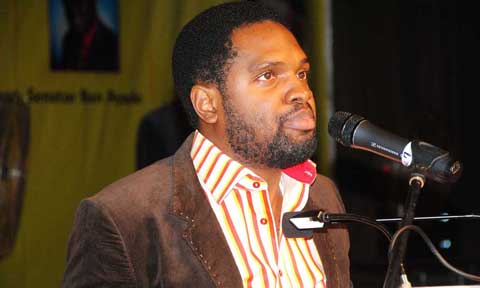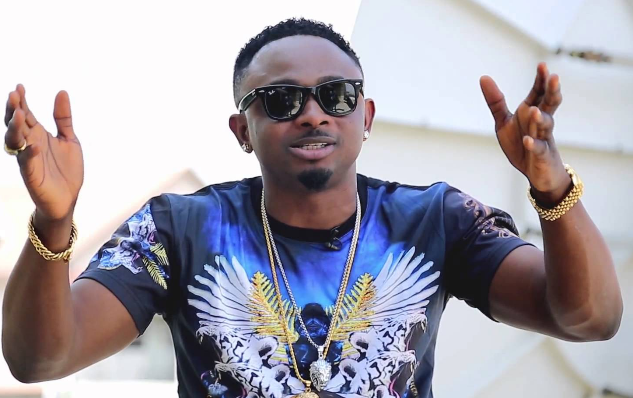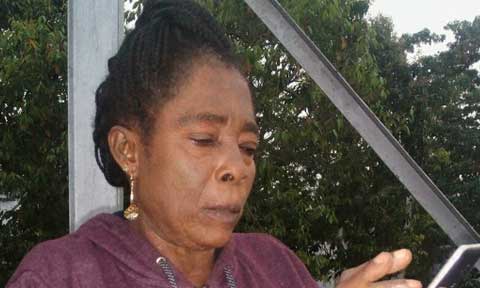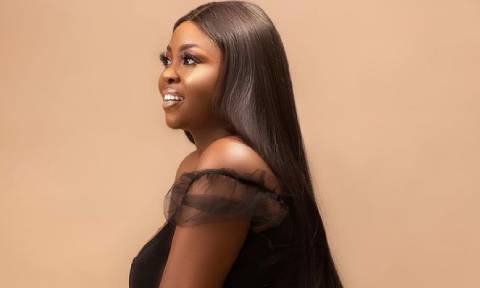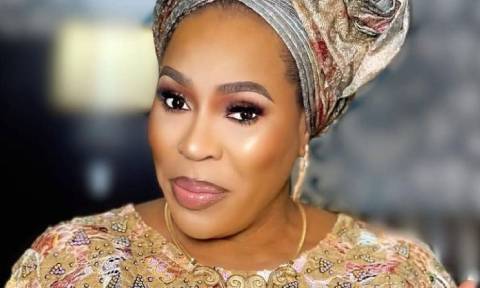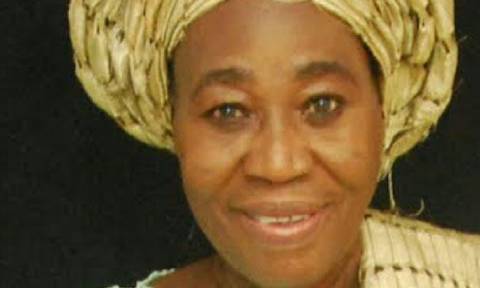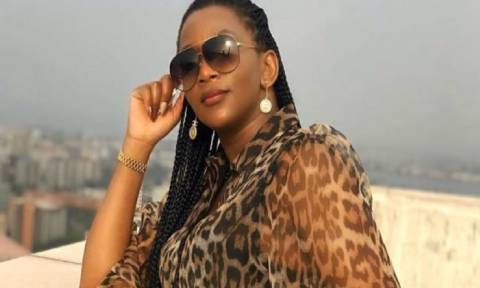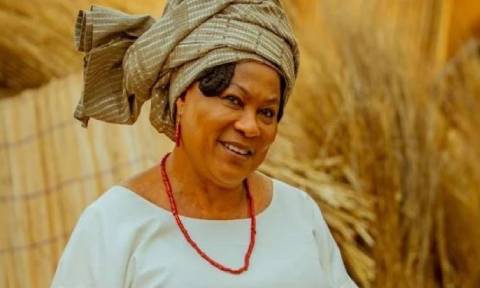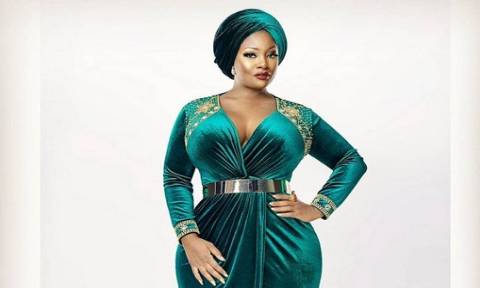Popular Nigerian singer and producer, Cobhams Asuquo, has opened up on how he feels about being a blind person. A highly regarded songwriter, producer, and musician, Cobhams Asuquo, came into the reckoning after producing Asa’s highly acclaimed international album, ASA.
The hugely talented though visually-impaired man reputed with working with a long line of music stars including Bono, Femi Kuti, D’Banj, Seyi Shay, Darey Art Alade, Tiwa Savage, Bez, Lara George, Flavour, Praiz and Yemi Alade spoke with ADEDAYO ODULAJA on music, his career and life in this riveting interview.
You have been around for a while but how much more music should your fans expect from you?
Certainly I am writing a lot more and trying to put out more music, I am very excited to be doing this; I have been putting out music for people for so many years and glad to be putting mine out now. I think it probably comes from being comfortable enough to do it feeling like you don’t hate your voice, for example, I always hated my voice for years and still don’t know if I can call myself a fan of my voice but at least I am comfortable enough to use it. I think part of it comes from that; I think it comes from the fact this is always what you always wanted to do and have been procrastinating and getting to appoint where you absolutely have to do it; Recognising that you have a message to share and a voice to contribute to the world and you just do it I think it’s all that
Is there any story or reason behind hating your own voice?
No particular reason, maybe it’s because I was always used to it or wanted it to sound a certain way, I think it comes from knowing yourself too much and I have come to find out that a lot of musicians are not crazy about their voice, maybe that’s a good thing but I am also happy that I can take out time and put my voice to good use.
How would you describe your sound if you had to do that?
I would say my sound is honest; I make music because I want to make music because I love it. It can be reggae today, country tomorrow but I think it’s honest. I think it is always saying something, always present, always sorrowful and moving.
Do you think the Nigerian audience understands enough to appreciate experimentation from artistes?
So far I have tried different styles and they have been well received. For instance, ordinary folks have some country nuances and you know people have received it quite well. “Do the right thing” has a pretty Rock vibe and “Blue Six” is something I did with Falz, straight up Hip-hop and “Nigerian Experience” and was also received pretty well. For “Star light,” I am not really sure what that is, I guessed I have just made good music and people have received it quite well and it terms of trying out other genres with other people, “I go go” is a pretty much straight up Reggae song with Omawumi and it was received quite well. I was privileged to produce Lagos Music Salon, a Jazz album for Somi, a Ugandan-American Jazz artiste we had the likes of C’ommon and Angelique Kidjo on that project, it was a jazz album that has been well.
Many people haven’t stopped talking about your AMVCAs 2018 performance with “One Hit’’ especially with the remix in which you practically reeled out names of Who’s Who in Nollywood. Was that planned?
It had to be; I couldn’t have (done that in) freestyle. I didn’t want to take much of a chance, I was nervous enough flipping the song on its head before whatever it was had to be planned and that was it.
Maybe before you decided on pursuing your love for music, what else could you have done?
Music has always being a part of me. I had wanted to try other things. I always wanted to be a lawyer and work with the international court of justice but that was not to be and I am thankful to be doing what I’m doing now. Music has always been a part of me. As a six-year old, I would play the blues and whistle, a piano would always excite me, a radio would always excite as well me. So, music has always been a part of me.
There is the argument that a lot of budding musicians are only crazy about fame and fortune, turning out hits from which they don’t get to enjoy royalties or proceeds. So, how grounded do you think budding musicians need to be?
I think they really need to be as grounded as possible, the business of music is a business and they have the attributes of any form of business, the transaction is involved, the contractual agreement is involved and you need to talk about the numbers and how much sense the numbers are making; so we need to be well versed in these areas before we can manage your portfolio and business and I feel we really need to have a serious business conversation and I feel we need to be well grounded to manage a sustainable music industry. Talent is great but talent is not enough, talent is only scratching the surface. Talent is what makes you live from hand to mouth, understanding the methodology of sustaining a business is what helps you build a lasting legacy. Poverty has done a lot of damage on our space and a lot of people are concerned with the basic necessities of life and it goes beyond that because people are able to build cities and businesses based on proper business principles and managing and exploiting talents. I think that is a serious conversation that needs to be had and I think we need to understand the value of proper talent management, that is why I said people from the Legal and HR need to get more involved in music. We need to have a holistic view of the talent industry and sort of position people so that it can become a perfectly-oiled machine and run smoothly. Musicians have their role to play in understanding the process and value of the process. Fame will not do much for you, there is a general assumption that fame will bring you money, that can be true for some and not for all; understanding the inner workings of the industry is what pretty much helps everyone position themselves appropriately.
What comes to your mind when you hear of artistes falling out with their record labels and ending up on social media and with legal tussles and why is this so widespread?
I think this is partly because we haven’t instituted the right structures to manage the label artistes and we are ignorant and make it up as we go and thee is bound to be error on the part of the artiste, there is a lot to understand on the part of contractual agreement work , there is desperation, there is poverty because what you see is what will help you get out of your financial situation and you forget that someone’s money goes into making you what you are today. Suddenly it doesn’t matter to you because you are now on par with your label or on some level. You are not taking the necessary steps to protect yourself because you are ignorant of the clauses of your contract that bind you in a certain way because you have not had a lawyer to look at your document; or on the part of the label you are entering into this business where you don’t have the right pre- requisites, the right financial muscle and in time you notice you are running out of steam and your artiste is becoming frustrated and bad blood begins to build. Or you don’t have the manpower or the schedule to sort of manage the process the way an artiste will want to be managed or you don’t understand the process of managing talents because talents can be quite expressive and erratic sometimes. All these issues just crop up and there are varying components it takes to put a label or artiste to work with a label together and a lot of times these things are missing. As a country, we need to have the infrastructure to support labels as a business because distribution is key and we don’t have distribution , we only have it in pockets and where there is distribution through digital outlets like iTunes and the likes we don’t build the right strategy around it.
What are some of the lessons you learnt along the way as an artiste?
I have learnt a lot of things, I have learnt that talent is not enough and that music is show business, the business is as important and the show side of things. I have learnt that I have to be intentional, that my voice is for me to say something strong at every given point in time. I have learnt that you can’t build a legacy without building structure because I run a business without the pre-requisite structure and we have also hemorrhaged money that is we have made a ton of money but we have also lost it and we have seen how that has gone, I have learnt that I am part of a big picture and I am contributing to building this environment, this industry, this society that I am also a part of. I have learnt the importance of variety and how I fit in and I don’t necessarily have to conform because I have a space, a pace that I am setting pretty much. I have learnt to defend what I believe in, I have learnt to continue to seek for knowledge, I have learnt to do things on time because that is pretty much the best gift you can give to yourself; do things when you should because a lot of people lose opportunities when they don’t do things on time.
How have you been able to strike a balance between married life and showbiz?
Number one, my wife is a very private person and I respect her privacy. Number two is the fact that it’s just common sense and a lot depends on what social media is to you. Social media is a tool for me to connect to people who I genuinely care about. Social media is not a place for me to go and tension people with how well my life is doing or how well my family is doing. I feel I have a real relationship on social media where I am either connecting with people on the latest thing I am working on; I don’t feel the pressure to impress or create an impression on social media. That’s not my focus or goal, I am a family person, a lover I have always been, my family allows me do this with ease and I don’t feel I have to necessarily share. I only share what is necessary. The goal for me is to pass across a strong message. The important thing to consider is why you do what you do? For me, if the motive is love you will know how to put things forward from a place of love and also my wife, being a private person also helps me to control myself.
So you don’t get to face the challenges some other artistes face with the opposite sex?
I don’t really consider this because the nature of my work means I am around the same set of people for a long period of time and when I do have interaction with other people, the interaction is heavily limited and watched. If I am at a show I probably have people from my management team with me. So, it is very difficult to show up unannounced in my hotel room or whatever because I have my people and they are going to ask questions and it’s their responsibility to protect me, keep me grounded and they do a good job of that.
Have there been many times where you wished you had your sight?
Not as much, lately I have realised that I have been unsightly and that is a good thing, sight is a gift and just because I don’t have the gift, I don’t sit down feeling sad and wishing I had my sight that just doesn’t happen with me but I know sight is a good gift and it will be interesting feeling what having your sight looks like, I guess.
Of the many career highlights you have had, which has been the most remarkable?
That’s interesting, I will have to think about that because I have been asked this question a couple of times and haven’t been able to place an actual answer. Quite a number of things have happened to me sometimes its meeting a certain person or people. When I met Chimamanda Ngozi Adichie, I thought that was one of the major highlights of my career, I absolutely love her and have read all her works. Another highlight was meeting Prof. Wole Soyinka, it was like he came out of my dreams and into my reality. I felt the same way when I met Marcus Miller, Nathan East, these are bass players. I felt the same way when I performed with Don Moen, I felt the same way when I met Common and when I met Bono, it happens to me a lot when I meet people and collaborate with people. I can’t point out just one person; it’s just meeting people like Richard Branson and having conversations with them.
Do we expect to see a Christmas album from you?
That is an interesting idea now that you have mentioned it but I think my friend, Timi Dakolo, is going to put out a Christmas single but let’s see. I don’t really know
It is common knowledge that you have produced a lot of hit songs and albums but which has been the most challenging for you?
I can’t really say I have a particular one. When I approach a project, I think of them individually, uniquely I don’t lump them together even when I think of artistes’ albums, I think of them as a collection of singles individually important to me.
***
Source: New Telegraph
